A méditer ...
 The Tao that can be trodden is not the enduring and unchanging Tao.
The Tao that can be trodden is not the enduring and unchanging Tao.The name that can be named is not the enduring and unchanging name.
Having no name, it is the Originator of heaven and earth; having a name, it is the Mother of all things.
Without desire we can plumb its depths; filled with desire, we can see only its externals.
Under these two aspects, it is really the same; but as it develops, it receives the different names.
Together we call them the Mystery; where the Mystery is deepest is the gate of all that is subtle and wonderful.
 All in the world know the beauty of the beautiful, and in knowing they have knowledge of ugliness; they all know the skill of the skilful, and in knowing this they have knowledge of the unskilled.
All in the world know the beauty of the beautiful, and in knowing they have knowledge of ugliness; they all know the skill of the skilful, and in knowing this they have knowledge of the unskilled.So it is that existence and non existence create each other;
So difficulty and ease produce each other;
So length and shortness fashion the one out of the figure of the other;
So height and lowness arise from the contrast of the one with the other;
So the musical notes and tones become harmonious through the relationship of one with another;
So before and after follow each other.
Therefore the sage acts without doing, and conveys his instructions without speech.
 All things spring up, and there is not one which declines to show itself; they grow, and there is no claim made for their ownership; they go through their processes and there is no expectation of a reward at the end.
All things spring up, and there is not one which declines to show itself; they grow, and there is no claim made for their ownership; they go through their processes and there is no expectation of a reward at the end.The work is accomplished without his laying claim to its merit.
Because the work is done without his laying claim to its merit, no one can take it away from him.
 Not to value and employ men of superior value is the way to keep the people from rivalr among themselves;
Not to value and employ men of superior value is the way to keep the people from rivalr among themselves;Not to prize hard-to-obtain articles is the way to keep them from becoming thieves;
Not to show them what is likely to excite their desires is the way to keep their minds from disorder.
Therefore the sage, in the exercise of his government, empties their minds, fills their bellies, weakens their will and strengthens their bones.
He tries constantly to keep them without knowledge and without desire, and where there are those who have knowledge, to keep them from acting on it.
When there is this abstinence from action, good order is universal.
 The Tâo is the emptiness of a vessel and in our employment of it we must be on our guard against all fullness.
The Tâo is the emptiness of a vessel and in our employment of it we must be on our guard against all fullness.How deep and unfathomable it is, as if it were the source of all things!
We should blunt our sharp points and unravel the complications of things.
We should temper our brightness and align ourselves with the obscurity of others.
How pure and eternally still the Tâo is.
I do not know whose son it is; it may even be older than God.
Heaven and earth do not act from any wish to be benevolent; they deal with all things as straw dogs are dealt with.
The sages do not act from any wish to be benevolent; they deal with people as straw dogs are dealt with.
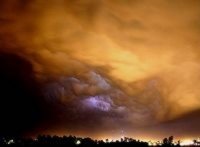 May we not the space between heaven and earth be compared to a bellows?
May we not the space between heaven and earth be compared to a bellows?It is empty, yet powerful; moved again at sends forth more air.
Talk only leads to fatigue; guard you inner being and keep it free.
 The spirit of the valley dies not; it is the female mystery.
The spirit of the valley dies not; it is the female mystery.It's gate from which they issue forth ay first, is called the root from which grew heaven and earth.
It's power is enduring, used gently and without pain.
 Heaven is long-enduring and earth continues long.
Heaven is long-enduring and earth continues long.The reason why heaven and earth are able to endure and to continue is that they do not live of, or for, themselves.
This is how they are able to continue and endure.
Therefore, that the sage puts his own person last, and yet it is found in the foremost place; he treats his person as if it were foreign to him, and yet that person is preserved.
Is it not because he has no personal and private ends, that therefore such ends are realized?
 The highest good is like that of water.
The highest good is like that of water.The good of water appears in its benefiting of all things, and in its occupying, without striving to leave, the low place which all men dislike.
Hence its way is like that of the Tâo.
The good of a home is in its location.
The good of the mind is in its depths.
The good of relationships in their virtuousness.
The good of government is in its securing good order.
The good of the conduct of affairs in its ability.
The good of activity is in its timeliness.
When a good man does not dispute his low position, no one finds fault with him.
 It is better to leave a vessel empty than to try to carry it when it is full.
It is better to leave a vessel empty than to try to carry it when it is full.If you keep feeling a point that has been sharpened, the point cannot long preserve its sharpness.
When gold and jade fill the hall, their owner cannot keep them safe.
When wealth and honours lead to arrogance, this brings evil on itself.
When his work is done, and his name is becoming distinguished, to withdraw into obscurity is the way of Heaven.
 When the intelligent and animal souls are united in one embrace, they can be kept from separating.
When the intelligent and animal souls are united in one embrace, they can be kept from separating.When he gives undivided attention to the vital breath and brings it to the utmost degree of pliancy, he can become as a newborn.
When he has cleansed the most mysterious sights of his imagination, he can become flawless.
In loving the people and ruling the state, cannot he proceed without any purpose of act?
In the opening and closing of his gates of heaven, cannot he do so as a female bird?
While his intelligence reaches in every direction, cannot he appear to be without knowledge?
The Tâo produces all things and nourishes them; it produces them and does not claim them as its own; it does all, and yet does not boast of it; it presides over all, and yet does not control them.
This is what is called 'The mysterious Quality' of the tâo.
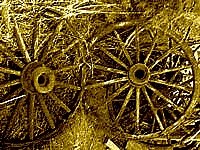 The thirty spokes unite in the one wheel; but it is on the empty space for the axle, that the use of the wheel depends.
The thirty spokes unite in the one wheel; but it is on the empty space for the axle, that the use of the wheel depends.Clay is fashioned into vessels; but it is on their hollow emptyness that their use depends.
The door and windows are cut from the walls to form a room; but it is on the empty space within that its use depends.
Therefore, what has a positive existence serves for profitable adaptation, and what has not, for actual usefulness.
 The five hues of colour blind the eyes, the five notes of music deafen the ears, the five flavours deprive the mouth of taste.
The five hues of colour blind the eyes, the five notes of music deafen the ears, the five flavours deprive the mouth of taste.The chariot race and hunting make the mind mad.
Coveting rarities changes man's conduct to evil.
Therefore the sage seeks to satisfy the craving of the belly and not that of the eyes.
He puts from him the latter, and prefers to seek the former.
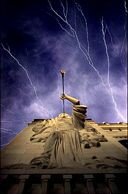 Favour and disgrace would seem equally to be feared, honour and great calamity to be regarded as personal conditions of the same kind.
Favour and disgrace would seem equally to be feared, honour and great calamity to be regarded as personal conditions of the same kind.What is meant by speaking thus of favour and disgrace?
Disgrace is being in a lowly position after falling from favour.
Achieving favour leads to the fear of losing it, and losing favour leads to the fear of a still greater calamity.
This is what is meant by saying that favour and disgrace would seem equally to be feared.
And what is meant by saying that honour and great calamity are to be seen as personal conditions ?
What makes me liable to great calamity is having the body I call myself. If i had not this body, what great calamity could befall me?
Therefore he who would administer the kingdom, honoring it as he honors his own person, may be employed to govern it, and he who would administer it with the love which he bears on his own person may be entrusted with it.
 We look at it, and we do not see it, and we name it The Unvarying.
We look at it, and we do not see it, and we name it The Unvarying.We listen to it, and we do not hear it, and we name it The Inaudible.
We try to grasp it, and we cannot get hold of it, and we name it The Subtle.
With these three qualities, it cannot be made the subject of description, and hence we blend them together to obtain The One.
Its upper part is not too bright, and its lower part is not obscure.
Ceaseless in it’s action, it yet cannot be named, and then it again returns and becomes nothing.
This is called the Form of the Formless, and the Semblance of the Invisible; this is called the Fleeting and the Intdeterminable.
We meet it and we do not see its front; we follow it and do not see its back.
When we can lay hold of the Tao of old to direct the things of the present, and are able to know it as it was of old in the beginning, this is called the unwinding of the thread of the Tao.
 The old and skillful masters of the Tao comprehended its mysteries with subtle and exquisite penetration, and were profound so as to elude men’s knowledge.
The old and skillful masters of the Tao comprehended its mysteries with subtle and exquisite penetration, and were profound so as to elude men’s knowledge.As they were thus beyond men’s knowledge, I will try to describe what they appeared to be.
They looked timid like those who wade through a stream in winter; irresolute like those who are afraid of all around them; grave like a guest in awe of his host; evanescent like ice that is melting away; unpretentious like wood that has not been fashioned into anything; vacant like a valley; dull like muddied waters.
Who can make muddy water clear ? Let it be still, and it will gradually become clear.
Who can secure the condition of rest ? Let movement go on, and the condition of rest will gradually take place.
They who preserve this method of the Tao do not wish to be full. It is through their not being full of themselves that they can afford to appear to be worn, not new and complete.
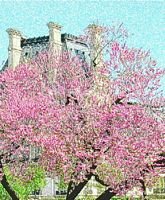 The state of emptiness should be brought to the utmost degree, and that of stillness guarded with untiring vigor.
The state of emptiness should be brought to the utmost degree, and that of stillness guarded with untiring vigor.All things alike go through their processes of activity, and then they return to their original state.
When things in the vegetable world have displayed their luxurient growth, we see each of them return to its root. This returning to its root is what we call the state of stillness, ans that stillness may be called a reporting that they have fulfilled their appointed end.
The report of that fulfillment is the regular and unchanging rule. To know that unchanging rule is to be intelligent; not to know it leads to wild movements and recklessness. The knowledge of that unchanging rule produces capacity and forbearance, and that capacity and forbearance lead to a community of feeling with all things.
From his community of feeling comes a kingliness of character, and he who is kinglike goes on to be heavenlike. In that likeness to heaven he possesses the Tao. Possessed of the Tao, he endures long, and, to the end of his bodily life, is exempt from all danger of decay.
 In the earliest times, the people did not know their rulers existed.
In the earliest times, the people did not know their rulers existed.In the next age, they loved them and praised them.
In the next they feared them.
In the next they despised them.
Thus it was that when faith in the Tao was deficient in the rulers, a want of faith in the rulers ensued in the people.
How irresolute did those earliest rulers appear in their reticence in speaking, refusing their words importance ? Their work was done and their undertakings were successful, while the people all said, "We are as we are, of ourselves !"
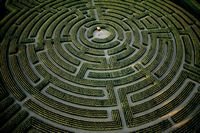 When the great Tao ceased to be observed, benevolence and righteousness came into vogue. Then appeared wisdom and shrewdness, and there ensued great hypocrisy.
When the great Tao ceased to be observed, benevolence and righteousness came into vogue. Then appeared wisdom and shrewdness, and there ensued great hypocrisy.When harmony prevailed throughout the sik kinships, sons found their filial duty, when the states and clans fell into disorder, loyal ministers appeared.
If we could renounce our sagacity and discard our wisdom, it would be better for the people a hundredfold.
If we could renounce our benevolence and discrd our righteousness, the people would again become filial and kindly.
If we could renounce our artful contrivances and discard our scheming for gain, there would be no thieves or robbers.
Those three methods of governing thought the old ways lacking in elegance, and set forth these names to veil their worthlessness.
The plain course and the simple view eschew selfish ends and lusts.
 When we renounce learning we are without trouble.
When we renounce learning we are without trouble.How to distuinguish the ‘yes’ which is readiness, and the ‘yes’ which is flattery when little else is displayed ?
What fills the gulf between Good and Evil ?
What all men fear is indeed to be feared, but how wide and without end is the range of questions asking to be answered.
The multitude of men look satisfied and pleased, as if enjoying a banquet, or enjoying the view from a tower in the spring.
I alone seem listless and still, my desires having as yet not given no sign of their presence.
I am like an infant who has not yet smiled. I look dejected and forlorn, as if i had no home to go to.
The multitude of men all have enough and to spare.
I alone seem to have lost everything. My mind is that of a stupid man. I am in a state of chaos.
Ordinary men look bright and intelligent, while i alone seem to be benighted.
They look full of discrimination, while I alone am witless and confused. I seem to be cerried about as if on the sea, drifting as if i had nowhere to rest.
All men have their spheres of action, while I alone seem dull and incapable, like a crude outsider.
Thus I alone am different from other men, but I seek the sustenance of the mother.
 The greatest virtues come only from the Tao, their source.
The greatest virtues come only from the Tao, their source.Who can tell the nature of the Tao? It flies out of our sightand eludes our touch.
The forms of all things crouch within it, eluding touch and sight.
Only the semblance of all things remains.
The Tao is profound, dark and obscure; The essence of all things endures there.
The essences enfold the truth, yielding all that, when seen, can be told.
It is so now. It was always so.
Its name is the eternal essence.
Thus all things form without end.
How do i know that it is so with all the beauties of existing things ? By this; the nature of the Tao.
The partial becomes comlete;
The crooked becomes straight;
The empty becomes full;
The worn out becomes new.
He whose desires are few fulfills them; he whose desires are many goes astray.
Therefore the sage holds in his embrace the one thing and manifests it to all the world.
He is free from self display and therefore he shines;
He is free from self-assertion and therefore he is distinguished;
He is free from self-boasting and therefore his merit is acknowledged;
He is free from self complacency and therefore he acquires superiority.
Because he is thus free from striving therefore there is no one in the world is able to strive against him.
The saying of the ancients that “the partial becomes complete” was not vainly spoken. All real completion is comprehended under it.
 Abstaining from speech marks him who obeys the spontaneity of his nature.
Abstaining from speech marks him who obeys the spontaneity of his nature.A violent wind does not last for a whole morning; a sudden rain does not last for the whole day. For these things, Heaven and Earth are responsible, and if Heaven and Earth cannot extend these actions, how much less can man ?
Therefore, when one follows the Tao, those who also persue it agree with him in it, and those who set their sights on the manifestations of its course agree with him in that, while even those who fail in the study and practice of the Tao agree with him while they fail.
Hence those with whom he agrees as to the Tao have the happiness of attaining it; those with whom he agrees as to its manifestation have the happiness of attaining it; and those with whom he agrees in their failure have also happiness in attaining the Tao.
But where his faith is insufficient, a want of faith in him ensues on the part of the others.
He who walks on his tiptoes does not stand steady; he who strides, walks unevenly.
He who displays himself does not shine; he who asserts his own views is not distinguished.
He who vaunts himself does not find his merit acknowledged; he who is self conceited has no superiority allowed to him.
From the standpoint of the Tao, these are like leftover crumbs of food, or extraneous growths.
Hence, those who persue the course of the Tao do not allow them.
 There was something undefined, and yet complete, coming into existence before Heaven and Earth.
There was something undefined, and yet complete, coming into existence before Heaven and Earth.How still it was and formless, standing alone, and undergoing no change, reaching everywhere and in no danger of being exhausted.
it may be regarded as the Mother of all things.
I do not know its name, and i give it the designation of the Tao.
Trying to name it further, i call it The Great.
Being great it flows constantly. Flowing it becomes remote. Having become remote, it returns. Therefore, the Tao is great; Heaven is great; Earth is great; and the King is also great.
In the universe there are four that are great and the King is one of them.
Man takes his law from the Earth, the Earth takes its law from the Heaven; Heaven takes its law from the Tao.
The law of the Tao being what it is.
 Gravity is the root of lightness; stillness is the ruler of movement.
Gravity is the root of lightness; stillness is the ruler of movement.Therefore the sage, marching the day long, does not go far from his baggage wagons. Although he may have brilliant prospects to observe, he remains quietly indifferent to them.
How should the lord of a myriad chariots carryhimself lightly before the kingdom? If he acts lightly, he has lost his root of graity; if he proceeds to active movement, he will lose his throne.
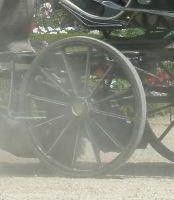 The skilled traveler leaves no marks from his wheels nor traces of his footsteps.
The skilled traveler leaves no marks from his wheels nor traces of his footsteps.The skilled speaker says nothing that can be found fault with or blamed.
The skilled calculator needs no bars or columns.
He who closes skillfully needs no bolts or bars, while to open what he has shut will be impossible; the skilled binder uses no strings or knots, while to unloose what he has bound will be impossible.
In the same way the sage is always skilled at saving men, and so does not cast away any man, he is always skilled at saving things and so he does not cast away anything.
This is to be called "Hiding the light of his procedure"
Therefore, the man of skill is a master to be looked up to by him who is unskilled: and he who is unskilled is the helper of he who has the skills.
If the one did not honor his master and the other did not rejoice in his helper, an observer, though intelligent, might greatly err about them.
This is called "The utmost degree of mystery".
 Who knows the masculine, yet maintains the feminine; as many streams flow into one channel, all come to him beneath the sky.
Who knows the masculine, yet maintains the feminine; as many streams flow into one channel, all come to him beneath the sky.Thus he retains the constant excellence, and becomes the stainless, simple child again.
Who knows the attraction of white, but keeps himself in the shade of black, displays the pattern of humility in the view of all beneath the sky.
He is arrayed in unchanging excellence, He returns to man’s first limitless state.
He who knows how glory shines, yet loves disgrace and is not pales by it, he becomes like a spacious valley to which all men come from beneath the sky.
The unchanging excellence is complete: We hail the simple child infant in the man.
Divided and distributed the unworked material yields vessels.
The sage, when employed becomes the ruler and in his rule employs no violent measures.
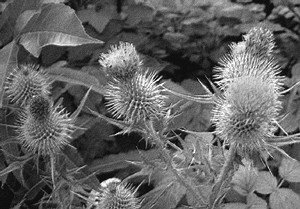 If anyone should wish to acquire the kingdom for himself, and to effect this by doing, I see that he will not succeed.
If anyone should wish to acquire the kingdom for himself, and to effect this by doing, I see that he will not succeed.The kingdom is a spirit like thing,
And cannot be gotten by active doing.
He who would so hold it in his grasp, loses it.
The course and nature of things is such: what was once front is now behind; what was first warmed is now freezing, what was once weakness is now strength, what was once built is now ruined.
Hence the sage renounces excessive effort, extravagance and easy indulgence.
He who would assist a lord of man in harmony with the Tao, will not assert his mastery in the kingdom by force of arms.
Such a course will only rebound upon itself.
Wherever an army is stationed, briars and thorns spring up.
In the sequence of great armies there are sure to be bad years.
A skilled commander strikes a decisive blow and stops.
He does not dare to assert and complete his mastery.
He will strike the blow, but will be on his guard against being vain or boastful or arrogant.
He strikes the blow as a matter of necessity, he strikes it without a need for mastery.
When things have attained their maturity, they become old.
This may be said not to be in accordance with the Tao, what is not in accordance with it soon comes to an end.
 Now weapons, however beautiful, are instruments of evil omen, hateful to all creatures.
Now weapons, however beautiful, are instruments of evil omen, hateful to all creatures.Therefore they who have the Tao do not like to employ them.
The superior man ordinarily considers the left hand the most honourable place, but, in time of war, it is the right hand.
Those sharp weapons are instruments of the superior man; he uses them only on the compulsion of necessity.
Calm and repose are what he prizes; victory by force of arms is undesirable to him.
To consider victory desirable would be to delight in the slaughter of men; he who delights in the slaughter of men cannot get his will in the kingdom.
On occasions of festivity, the prized position is that of the left hand; on occasions of mourning, the right hand.
The second in command of the army has his place on the right, the place assigned to him by the rites of mourning.
He who has killed multitudes of men should weep for them with the bitterest of grief, and the victor in battle has his place according to those rites.
 The Tao, considered as unchanging has no name.
The Tao, considered as unchanging has no name.Though in its primordial simplicity it may be small, the whole world does not presume to demean it.
If a prince or a king could guard and hold it, all would spontaneously submit themselves to him.
Under the Tao’s guidance, Heaven and Earth unite together and send down the sweet des which, without the directions of men, reaches equally everywhere of its own accord.
As soon as it proceeds to action it has a name.
Once it has a name, men can know to rest in it.
When they know to rest in it, they can be free from all risk and failure.
The relation of the Tao to all the world is like that of the great rivers and seas to the streams from the valleys.
He who knows other men is discerning; he who knows himself is intelligent.
He who overcomes others is strong; he who overcomes himself is mighty.
He who is satisfied with his lot is rich; he who goes on acting with energy has a will.
He who does not fail in the requirements of his position continues long; he who dies and yet does not perish has longevity.
 All pervading is the great Tao !
All pervading is the great Tao !It may be found on the left hand and on the right.
All things depend on it for their production, which it gives to them; not one refuses obedience to it.
When its work is accomplished, it does not claim the name of accomplishment.
It clothes all things as if with a garment, and makes no assumption of being their lord; it may be named in the smallest things.
All things return, and do not know that it is the Tao that presides over their returning; it may be named in the greatest things.
Hence the sage is able, in the same way, to accomplish his great achievements.
It is not by making himself great that he can accomplish great things.
To him who holds in his hands the great image, the whole world repairs. Men resort to him and receive no hurt but find rest, peace and feeling of ease.
Music and sweets will make the passing guest repair.
But though the Tao seems insipid and has no flavour, though it seems not worth looking at or being listened to, the use of it is inexhaustible.
 When he is about to inhale, he must first exhale.
When he is about to inhale, he must first exhale.When he weakens another, he will first strengthen him.
When he strives to overthrow, he must first rise up.
When he will plunder another, he must first make gifts to him.
This is called “Hiding the Light”
The soft overcomes the hard, and the weak the strong.
Fish should not be taken from the deep; instruments for the profit of a state should not be shown to the people.
The Tao in its regular course does nothing, and so there is nothing which it does not do.
If princes and kings were able to maintain it, all things would of themselves be transformed by them.
If this transformation became an object of my desire, I would express the desire by the nameless simplicity.
The nameless simplicity is free from all external aim, desireless, at rest and still; all things go right as of their own accord.













0 Comments:
Enregistrer un commentaire
<< Home